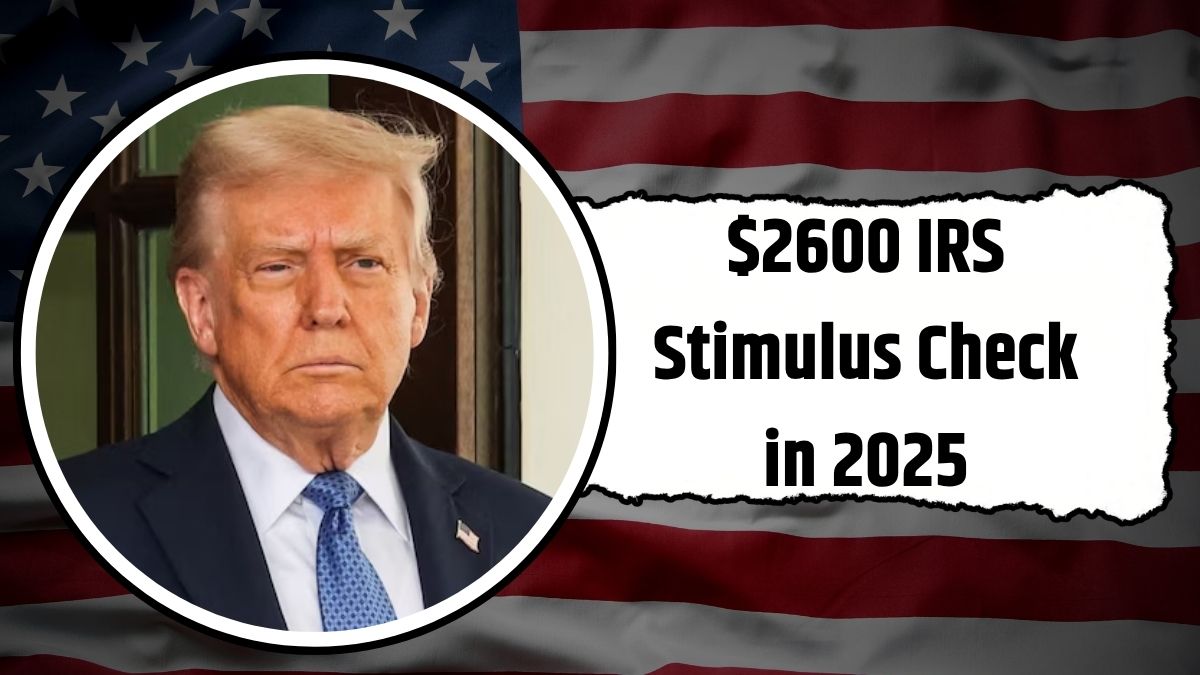With growing buzz around a potential $2,600 stimulus check in 2025, many Americans are wondering whether financial relief is actually on the way. While no official approval has been granted by the U.S. government or IRS, ongoing discussions in Washington have kept the possibility alive.
This guide breaks down what’s currently known, who may qualify if the proposal moves forward, and how to prepare in case a new round of federal stimulus payments is announced.
Current Status: No Official Stimulus Yet
As of now, there is no confirmed $2,600 stimulus check for 2025. However, lawmakers and policy experts continue to consider economic relief measures, particularly in response to signs of economic slowdown, rising inflation, or job losses.
Past stimulus packages were passed during the COVID-19 pandemic to support struggling households. If similar conditions arise in 2025, Congress could approve a new stimulus as part of a larger federal relief plan.
At a Glance: Potential Stimulus Check Details
| Topic | Details |
|---|---|
| Stimulus Amount | $2,600 (not confirmed) |
| Eligibility Basis | Income, dependents, benefits, and tax filing |
| Payment Methods | Direct deposit, paper check, or debit card |
| Timeline | Unknown—no law passed yet |
| IRS Website | www.irs.gov |
Who Could Qualify If It’s Approved?
If the $2,600 payment becomes reality, it will likely follow the structure of previous stimulus rounds. Eligibility will be based on income, tax filings, and household status. Here’s a look at the possible qualifying criteria:
1. Income-Based Eligibility
In past programs, stimulus payments were based on adjusted gross income (AGI):
- Individuals earning under $75,000/year received the full amount
- Married couples under $150,000/year also qualified fully
- Partial payments were issued for incomes slightly above these limits
- No payment was made above $99,000 (single) or $198,000 (married)
A similar tiered structure may be applied if the $2,600 payment is approved.
2. Recent Tax Filers
Filing a federal income tax return for 2023 or 2024 will likely be essential. The IRS uses your most recent return to determine eligibility and delivery method.
3. Dependent Bonuses
Previous stimulus checks included extra amounts for each dependent child or adult. A new round may do the same, increasing your payment if you have qualifying dependents.
4. Government Benefit Recipients
If you receive Social Security, SSI, SSDI, or VA benefits, you were automatically eligible in the past—and you’d likely qualify again. These groups typically receive payments through direct deposit to their existing benefit accounts.
How the Payment Would Be Delivered
If a 2025 stimulus payment is approved, the IRS is expected to use the same distribution system used in previous relief rounds:
- Direct Deposit: The fastest and most reliable option
- Paper Check: Mailed to the most recent address on your IRS file
- Prepaid Debit Card: Sent to non-filers or those without bank accounts
To avoid delays, make sure your IRS records and bank information are up to date.
When Would You Get Paid?
There is no official timeline yet, since no law has been passed. But if Congress approves a package, the following process usually unfolds:
- Congress passes the relief bill
- The IRS sets a disbursement schedule, typically within 2–3 weeks
- Direct deposits go out first, followed by checks and debit cards
- Most Americans receive their payment within 1 to 3 months after legislation is signed
IRS Tools for Payment Tracking
If a new stimulus is launched, the IRS will likely reactivate its “Get My Payment” portal. Here’s how to use it:
- Visit irs.gov
- Click on “Get My Payment”
- Enter your Social Security Number, date of birth, and mailing address
- View your payment status, method, and delivery date
This tool helps Americans track their checks, confirm payment types, and update key details.
How to Prepare in Advance
While no stimulus check is confirmed yet, you can get ahead by being ready. Follow these tips:
- File your 2024 taxes on time to ensure your latest financial info is available
- Set up direct deposit with the IRS for faster payments
- Check your IRS account regularly for updates
- Ignore scams—never share personal information or pay fees to “reserve” a check
If a stimulus is approved, those already set up with the IRS will receive funds more quickly and with fewer issues.
Common Stimulus Myths—What’s Not True
With speculation spreading on social media, it’s important to stick to verified sources. Here are a few false claims to watch for:
- “You need to apply or pay a fee to get the check” – False. Any approved stimulus will be automatic
- “Stimulus checks are available now” – No. As of now, no stimulus check has been authorized
- “Everyone will get $2,600” – Not guaranteed; actual amounts would vary based on income and household details
Stick to trusted sources like irs.gov or government press releases.






